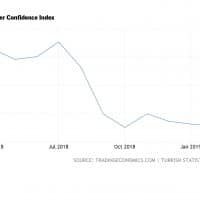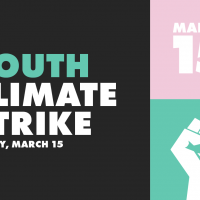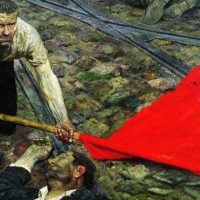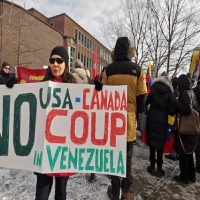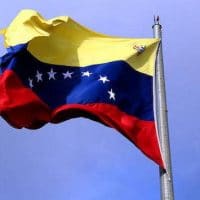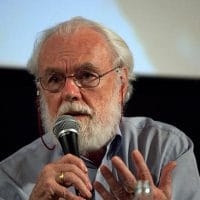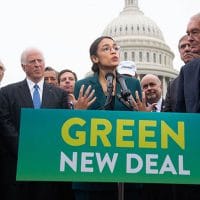-
John Smith on imperialism (part 3)
“The chief constraints confronting imperialism are those that arise from capitalism’s own internal contradictions, and these manifest themselves in the systemic crisis.”
-
John Smith on imperialism (part 2)
With the notable exception of the Monthly Review school, recent studies of financialization by avowedly Marxist and left-Keynesian economists attempt to theorize it in isolation from the transformations that have taken place in the sphere of production, especially the globalization of production processes and their large-scale relocation to low-wage countries.
-
John Smith on imperialism (part 1)
“The liberal/mainstream notion of imperialism that permeates…bourgeois political opinion proceeds from the elementary observation that the various empires that have existed during the past three millennia share one obvious characteristic, namely territorial conquest accomplished through military force.”
-
The Turkish economy: worse than a recession
Turkey’s economy is back in the news, and not in a good way. After the release of an economic report by the Turkish Statistical Institute, a big dispute has arisen over whether or not Turkey has entered a recession.
-
Women marchers and absentees
Berlin, alone among Germany’s 16 states, has declared International Women’s Day a paid holiday, compensating for the fact that the city-state has fewer religious holidays than all the others. A third of the city was once part of the (East) German Democratic Republic, which always marked the day; that may also have contributed to the decision. This was its first year.
-
Youth Climate Strike Friday, March 15, 2019
The U.S. Youth Climate Strike is just one of hundreds of Youth Climate Strike groups that have appeared around the world after Greta Thunberg‘s courageous one-person protest in Belgium caught fire.
-
Students, the Sixties, and How to ‘Fail Better’
With their wide range of styles and perspectives, these little memoirs give a good sense of the period and the issues, but their value is more than historic. As a new generation is being drawn to radical politics, today’s activists may be able to gain useful insights from the experiences of their predecessors.
-
Canadian support for intervention in Venezuela
The Liberal Party of Canada is ensnared in a scandal alleging high-level government intervention to shield a major engineering firm from criminal prosecution over its practices abroad. The timing of the scandal is note worthy. It has emerged after a high profile role taken by the governing Liberals in destabilizing Venezuela. Looking at the firms operations in Venezuela provides a broader context of Canadian capitalism and imperialism.
-
‘Useful to keep them nervous’: LISTEN as top Trump aide blabs U.S. Venezuela plans
Vovan and Lexus, Russian telephone pranksters known for their trolling of politicians from around the world, have struck again, targeting U.S. special representative for Venezuela Elliott Abrams to find out more about the U.S.-backed effort to unseat that country’s legitimate government. Sputnik got ahold of the full audio from the talks.
-
The Venezuela crisis and realpolitik
As heads of government, democratically entrusted with safeguarding the welfare of all Venezuelans, Chavez and Maduro bear overall responsibility for the economic crisis, but they are not alone.
-
Historic ruling by the World Court: the U.S. base on Diego Garcia was obtained in violation of international law
The U.S. airbase on the Indian Ocean island of Diego Garcia is among the most crucial and heavily used. With this ruling by the International Court of Justice the brand of a cruel and blatant violation of international law has been fixed for all time—and U.S. military control of the island may finally be over.
-
U.S. spy plane reportedly spotted over Venezuela as Maduro warns of risk of war
The developments come after Venezuelan President Nicolas Maduro claimed in an interview with ABC News on Monday that the United States is trying to “fabricate a crisis” to start a war in South America.
-
The State and Accumulation Under Contemporary Capitalism
Historically, capitalism develops institutions and ideologies that justify surplus extraction and capital accumulation. In the last decades of the twentieth century, the financialization of capitalism initiated a new era of accumulation which is known in academic contexts as finance-capital-driven neoliberalism.
-
Financial blockade: Chronology of a strategy to destroy Venezuela
Sanctions against Venezuela are real and palpable mechanisms of destruction of the State, identity and, with it, of Venezuelan society.
-
‘The neoliberal project is alive but has lost its legitimacy’: David Harvey
In an interview with The Wire, the well-known Marxist scholar talks about the surge of populist and right-wing politics and the future of neoliberalism, capitalism and technology.
-
Contrary creatures
A majority of Germans want peaceful relations with Russia (and in general), despite the media, politicians and big biz groups pulling toward catastrophe.
-
U.S. military adventure against Venezuela must be stopped
Cuba condemns the U.S. government’s escalating preparations for a military adventure in Venezuela and calls on the international community to mobilize to prevent its consummation.
-
Dossier 13: The new intellectual
These two matters—the battle of ideas and the new intellectual—take up the first two parts of this dossier. The third part enters a brief discussion of our political context and offers a map of our concerns and our research. We look forward to your response to our invitation to a dialogue.
-
As Macron prepares new repressive measures Yellow Vests and Red Unions strike together
On Tues, Feb. 5, as the Macron government pushed harsh repressive laws against demonstrators through the National Assembly, the Yellow Vests joined with France’s unions for the first time in a day-long, nation-wide “General Strike.”
-
A Green New Deal is the first step toward an eco-revolution
In this interview, Foster discusses why a Green New Deal is just an entry point to an ecological revolution, and why any economic-social system that hopes to address the climate crisis must transcend capitalism.




